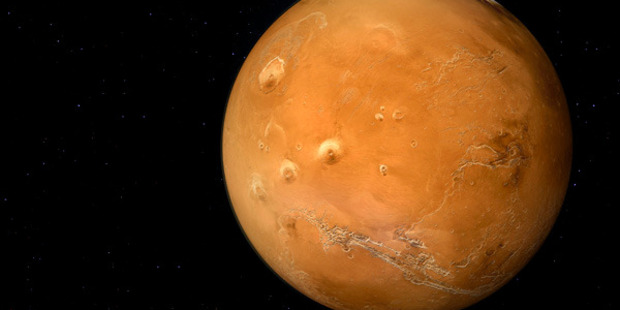Science
Global Events Spark Reflection on Humanity’s Nature and Challenges

This week has been marked by significant global events that prompt deep reflection on the state of humanity. NASA announced the discovery of what may be the clearest indication of ancient life on Mars. At the same time, alarming statistics revealed that, for the first time in human history, there are more obese children worldwide than underweight children. These contrasting realities underscore a troubling disparity in global health and resources.
In the Middle East, ongoing conflicts threaten peace talks, with missile strikes further complicating efforts for resolution. Meanwhile, European airspace has seen increased military activity, including the deployment of drones and fighter jets. These developments highlight the persistent turmoil that defines many regions of the world, raising questions about the efficacy of current diplomatic approaches.
In the United States, the assassination of a political figure has further fueled concerns over safety and freedom of expression. Such actions starkly contrast with the country’s self-image as a leader in democratic values. This week serves as a stark reminder of the complexities and contradictions inherent in human society.
These events lead to a broader contemplation of humanity’s role on Earth. If extraterrestrial beings were to arrive and observe our world, what conclusions might they draw? The contrast between our ability for compassion, often espoused in religious teachings, and the violence that frequently accompanies our disagreements is striking.
Religion teaches love and understanding, yet conflicts are often fought in its name. Scarcity exists alongside abundance, with some individuals facing hunger while others contend with obesity. Democracy, a cherished ideal, can devolve into violence when dissent is met with fatal consequences.
The cyclical nature of conflict—fighting over territory, resources, and ideological differences—echoes the behaviors seen in the animal kingdom, yet our social structures allow for more complex motivations. Social media, while a tool for connection, may also exacerbate division and animosity among individuals.
As we consider the possibility of contact with extraterrestrial life, one might ponder how we would explain our actions and beliefs. Would we introduce them to influential leaders such as Donald Trump, Xi Jinping, The Pope, and The King? Or would it be more fitting to ask for a place among the stars, reflecting our own struggles for understanding and acceptance on Earth?
The current climate of global affairs challenges us to confront our nature as social beings, capable of both profound kindness and destructive conflict. Ultimately, the question remains: how do we reconcile these traits in a way that leads to a more harmonious existence? As the world continues to navigate these complexities, it is imperative to foster dialogue and understanding, both among ourselves and, perhaps one day, with those from beyond our planet.
-

 Sports2 months ago
Sports2 months agoNetball New Zealand Stands Down Dame Noeline Taurua for Series
-

 Entertainment2 months ago
Entertainment2 months agoTributes Pour In for Lachlan Rofe, Reality Star, Dead at 47
-

 Entertainment3 weeks ago
Entertainment3 weeks agoNew ‘Maverick’ Chaser Joins Beat the Chasers Season Finale
-

 Sports2 months ago
Sports2 months agoSilver Ferns Legend Laura Langman Criticizes Team’s Attitude
-

 Politics4 weeks ago
Politics4 weeks agoNetball NZ Calls for Respect Amid Dame Taurua’s Standoff
-

 Entertainment2 months ago
Entertainment2 months agoKhloe Kardashian Embraces Innovative Stem Cell Therapy in Mexico
-

 World3 months ago
World3 months agoPolice Arrest Multiple Individuals During Funeral for Zain Taikato-Fox
-

 Sports2 months ago
Sports2 months agoGaël Monfils Set to Defend ASB Classic Title in January 2026
-

 Entertainment1 month ago
Entertainment1 month agoTyson Fury’s Daughter Venezuela Gets Engaged at Birthday Bash
-

 Sports1 month ago
Sports1 month agoHeather McMahan Steps Down as Ryder Cup Host After Controversy
-

 World1 week ago
World1 week agoSevere Winds Hit New Zealand, Over 100 Flights Canceled
-

 Entertainment1 month ago
Entertainment1 month agoTyson Fury’s Daughter Venezuela Gets Engaged at Birthday Bash




















